Digital Humanities Quarterly interviews
Item set
- Title (Dublin Core)
- Digital Humanities Quarterly interviews
- Rights (Dublin Core)
-
Interview audio files are made available under a creative commons licence “by-nc-nd” with the following characteristics:
• by: the content must be attributed to me and the interviewer.
• non-commercial: commercial use of the content is not allowed.
• no derivative works: the material is to be allocated in its original form and may not be
edited.
See: http://creativecommons.org/licenses/by-ncnd/
3.0/ and http://creativecommons.org/licenses/by-nc-nd/3.0/legalcode.
- Relation (Dublin Core)
-
Transcripts of interviews are published here: http://www.digitalhumanities.org/dhq/vol/6/3/index.html
- Language (Dublin Core)
- English
- Type (Dublin Core)
- Oral history interviews about the history of Digital Humanities
- Temporal Coverage (Dublin Core)
- c. 1965-1985
Items
-
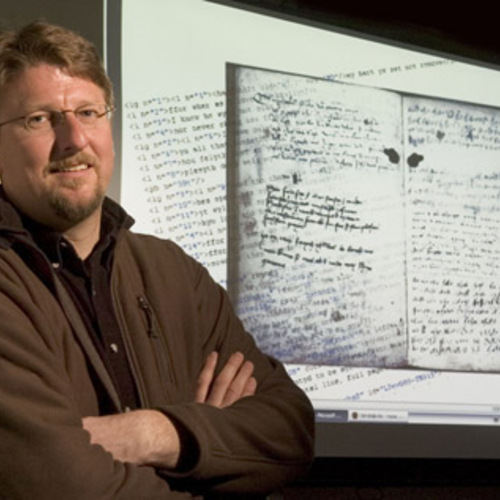 Video-gaming, Paradise Lost and TCP/IP: an Oral History Conversation between Ray Siemens and Anne Welsh This extended interview with Ray Siemens was carried out on June 21 at Digital Humanities 2011, Stanford University. It explores Siemens' early training and involvement in the field that is now known as digital humanities. He recalls that his first experience with computing was as a video gamer and programmer in high school. He had the opportunity to consolidate this early experience in the mid-1980s, when he attended the University of Waterloo as an undergraduate in the department of English where he undertook, inter alia, formal training in computing. He communicates strongly the vibrancy of the field that was already apparent during his graduate years (up to c. 1991) and identifies some of the people in places such as the University of Alberta, University of Toronto, Oxford, and the University of British Columbia who had a formative influence on him. He gives a clear sense of some of the factors that attracted him to computing, for example, the alternatives to close reading that he was able to bring to bear on his literary research from an early stage. So too he reflects on computing developments whose applications were not immediately foreseeable, for example, when in 1986 he edited IBM's TCP/IP manual he could not have foreseen that by 1989 TCP/IP would be firmly established as the communication protocol of the internet. He closes by reflecting on the prescience of the advice that his father, also an academic, gave him regarding the use of computing in his research and on his early encounters with the conference scene.
Video-gaming, Paradise Lost and TCP/IP: an Oral History Conversation between Ray Siemens and Anne Welsh This extended interview with Ray Siemens was carried out on June 21 at Digital Humanities 2011, Stanford University. It explores Siemens' early training and involvement in the field that is now known as digital humanities. He recalls that his first experience with computing was as a video gamer and programmer in high school. He had the opportunity to consolidate this early experience in the mid-1980s, when he attended the University of Waterloo as an undergraduate in the department of English where he undertook, inter alia, formal training in computing. He communicates strongly the vibrancy of the field that was already apparent during his graduate years (up to c. 1991) and identifies some of the people in places such as the University of Alberta, University of Toronto, Oxford, and the University of British Columbia who had a formative influence on him. He gives a clear sense of some of the factors that attracted him to computing, for example, the alternatives to close reading that he was able to bring to bear on his literary research from an early stage. So too he reflects on computing developments whose applications were not immediately foreseeable, for example, when in 1986 he edited IBM's TCP/IP manual he could not have foreseen that by 1989 TCP/IP would be firmly established as the communication protocol of the internet. He closes by reflecting on the prescience of the advice that his father, also an academic, gave him regarding the use of computing in his research and on his early encounters with the conference scene. -
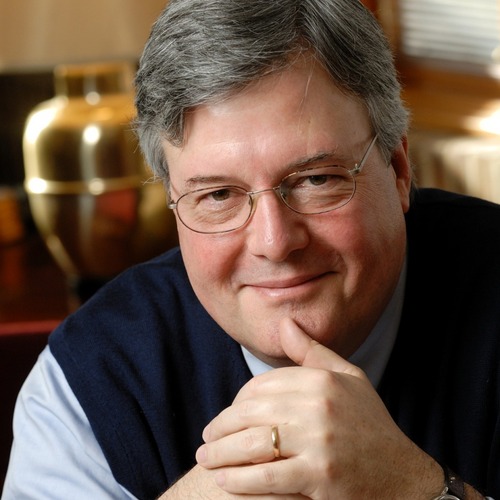 Postmodern Culture and More: an Oral History Conversation between John Unsworth and Anne Welsh John Unsworth recounts that he first became involved with computing in the Humanities c. 1989 as a new faculty member at North Carolina State University where he was hired to teach post-World War II American literature. He and his colleagues wanted to set up a new journal as only one other journal existed in that area. They were introduced to the recently released LISTSERV software and the first issue of the journal was circulated on email lists and bulletin boards. It was called Postmodern Culture and twenty-two years later is still published by Johns Hopkins University Press. It was the first peer-reviewed electronic journal in the Humanities; nevertheless, not all senior colleagues were in favour of it and, as a junior faculty member, his participation in it. He recounts that was not able to avail of formal training in computing but he did have technical knowledge of computing, mostly picked up while procrastinating on this PhD. By the early 1990s he was reading Humanist and attending conferences that focused on electronic journals where he encountered a range of academic and non-academic projects. In 1993 he moved to the University of Virginia where he directed the Institute for Advanced Technology in the Humanities (IATH). He reflects on the wide range of people and projects that he worked with and that it was around this time that he became involved with the community now known as digital humanities. He reflects in detail on the first digital humanities conference he attended in Paris in 1994 and concludes by discussing some of the changes that the advent of the Web has heralded.
Postmodern Culture and More: an Oral History Conversation between John Unsworth and Anne Welsh John Unsworth recounts that he first became involved with computing in the Humanities c. 1989 as a new faculty member at North Carolina State University where he was hired to teach post-World War II American literature. He and his colleagues wanted to set up a new journal as only one other journal existed in that area. They were introduced to the recently released LISTSERV software and the first issue of the journal was circulated on email lists and bulletin boards. It was called Postmodern Culture and twenty-two years later is still published by Johns Hopkins University Press. It was the first peer-reviewed electronic journal in the Humanities; nevertheless, not all senior colleagues were in favour of it and, as a junior faculty member, his participation in it. He recounts that was not able to avail of formal training in computing but he did have technical knowledge of computing, mostly picked up while procrastinating on this PhD. By the early 1990s he was reading Humanist and attending conferences that focused on electronic journals where he encountered a range of academic and non-academic projects. In 1993 he moved to the University of Virginia where he directed the Institute for Advanced Technology in the Humanities (IATH). He reflects on the wide range of people and projects that he worked with and that it was around this time that he became involved with the community now known as digital humanities. He reflects in detail on the first digital humanities conference he attended in Paris in 1994 and concludes by discussing some of the changes that the advent of the Web has heralded. -
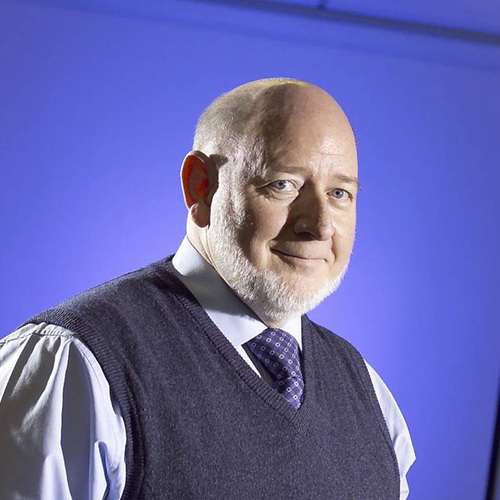 Collaboration Must Be Fundamental or It's Not Going to Work: an Oral History Conversation between Harold Short and Julianne Nyhan Harold Short recounts that his interest in Computing and the Humanities goes back to when he was an undergraduate in English and French at a university in the former Rhodesia (now Zimbabwe). There, whilst undertaking summer work in the library, he saw first-hand the potential of digital methods. After arriving in London in 1972 he took an Open University degree in mathematics, computing and systems. Among his early influences he identifies the reading he did on matters related to cognitive science whilst undertaking a postgraduate certificated in education. In the UK he worked at the BBC as programmer, systems analyst and then systems manager. In 1988 he moved to King's College London to take up the post of Assistant Director in Computing Services for Humanities and Information Management. One of his first tasks was to work with the Humanities Faculty to develop an undergraduate programme in humanities and computing. The first digital humanities conference he attended was the first joint international conference of ALLC and ACH, held at the University Toronto in 1989, which c. 450 people attended. He reflects on aspects of the institutional shape of the field towards the end of the 1980s, including the key Centres that existed then, the first meeting of the Association for Literary and Linguistic Computing (ALLC) and those who were active in it such as Roy Wisbey, Susan Hockey and the late Antonio Zampolli. He gives a detailed discussion of the development of what is now the Department of Digital Humanities in King's College London, both in terms of the administrative and institutional issues involved, as well as the intellectual. He also reflects on some of the most successful collaborations that the Department has been involved in, for example, the AHRC funded Henry III Fine Rolls project, and the conditions and working practices that characterised them. He closes by discussing his impressions about the movement of scholars into and out of the discipline and of the institutional issues that have had an impact on digital humanities centres.
Collaboration Must Be Fundamental or It's Not Going to Work: an Oral History Conversation between Harold Short and Julianne Nyhan Harold Short recounts that his interest in Computing and the Humanities goes back to when he was an undergraduate in English and French at a university in the former Rhodesia (now Zimbabwe). There, whilst undertaking summer work in the library, he saw first-hand the potential of digital methods. After arriving in London in 1972 he took an Open University degree in mathematics, computing and systems. Among his early influences he identifies the reading he did on matters related to cognitive science whilst undertaking a postgraduate certificated in education. In the UK he worked at the BBC as programmer, systems analyst and then systems manager. In 1988 he moved to King's College London to take up the post of Assistant Director in Computing Services for Humanities and Information Management. One of his first tasks was to work with the Humanities Faculty to develop an undergraduate programme in humanities and computing. The first digital humanities conference he attended was the first joint international conference of ALLC and ACH, held at the University Toronto in 1989, which c. 450 people attended. He reflects on aspects of the institutional shape of the field towards the end of the 1980s, including the key Centres that existed then, the first meeting of the Association for Literary and Linguistic Computing (ALLC) and those who were active in it such as Roy Wisbey, Susan Hockey and the late Antonio Zampolli. He gives a detailed discussion of the development of what is now the Department of Digital Humanities in King's College London, both in terms of the administrative and institutional issues involved, as well as the intellectual. He also reflects on some of the most successful collaborations that the Department has been involved in, for example, the AHRC funded Henry III Fine Rolls project, and the conditions and working practices that characterised them. He closes by discussing his impressions about the movement of scholars into and out of the discipline and of the institutional issues that have had an impact on digital humanities centres. -
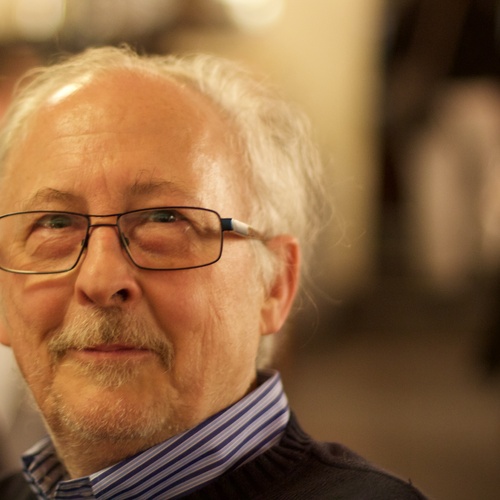 Questioning, Asking and Enduring Curiosity: an Oral History Conversation between Julianne Nyhan and Willard McCarty This interview was carried out with Willard McCarty on Tuesday 27th March, 2012 in University College London. He recounts that his earliest encounter with computing was in the Lawrence Radiation Laboratory in Berkley where he worked with semi-automated scanning equipment for the Alvarez high-energy physics projects. After his dreams of becoming a physicist were thwarted he transferred to Reed College. There he did not have the opportunity to take formal training in computing; for the most part, Computer Science departments did not exist then. So, he learned to programme “on the job” with help from a talented physicist turned computer programmer named Bill Gates (no association with Microsoft). His first encounter with what we now call digital humanities was at the University of Toronto where he worked on the Records of Early English Drama project whilst undertaking a PhD on 17th century non-dramatic poetry. In 1984/5, as he was finishing his PhD, he accepted an academic support role at the Centre for Computing in the Humanities at Toronto, where he remained until 1996 when he accepted an academic post in King's College London. In Toronto he was keenly aware of the staff-faculty divide and the marginalised position of those who used computers in Humanities research. Nevertheless, the opportunities that the role brought to meet with a range of scholars interested in computing had a lasting influence on him. So too, with funding from the Social Sciences and Humanities Research Council of Canada he was able to undertake a research project on Ovid's Metamorphosis. He closes the interview by reflecting on his early involvement with the conference scene and people who have influenced him, from academics to his calligraphy teacher Lloyd Reynolds.
Questioning, Asking and Enduring Curiosity: an Oral History Conversation between Julianne Nyhan and Willard McCarty This interview was carried out with Willard McCarty on Tuesday 27th March, 2012 in University College London. He recounts that his earliest encounter with computing was in the Lawrence Radiation Laboratory in Berkley where he worked with semi-automated scanning equipment for the Alvarez high-energy physics projects. After his dreams of becoming a physicist were thwarted he transferred to Reed College. There he did not have the opportunity to take formal training in computing; for the most part, Computer Science departments did not exist then. So, he learned to programme “on the job” with help from a talented physicist turned computer programmer named Bill Gates (no association with Microsoft). His first encounter with what we now call digital humanities was at the University of Toronto where he worked on the Records of Early English Drama project whilst undertaking a PhD on 17th century non-dramatic poetry. In 1984/5, as he was finishing his PhD, he accepted an academic support role at the Centre for Computing in the Humanities at Toronto, where he remained until 1996 when he accepted an academic post in King's College London. In Toronto he was keenly aware of the staff-faculty divide and the marginalised position of those who used computers in Humanities research. Nevertheless, the opportunities that the role brought to meet with a range of scholars interested in computing had a lasting influence on him. So too, with funding from the Social Sciences and Humanities Research Council of Canada he was able to undertake a research project on Ovid's Metamorphosis. He closes the interview by reflecting on his early involvement with the conference scene and people who have influenced him, from academics to his calligraphy teacher Lloyd Reynolds. -
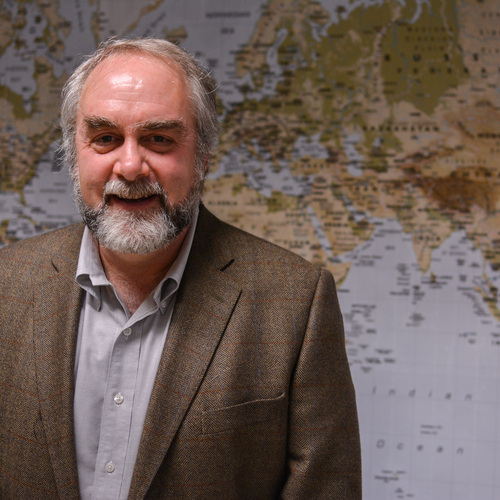 Trading Stories: an Oral History Conversation between Geoffrey Rockwell and Julianne Nyhan This extended interview with Geoffrey Rockwell was carried out via Skype on the 28th April 2012. He narrates that he had been aware of computing developments when growing up in Italy but it was in college in the late 1970s that he took formal training in computing. He bought his first computer, an Apple II clone, after graduation when he was working as a teacher in the Middle East. Throughout the interview he reflects on the various computers he has used and how the mouse that he used with an early Macintosh instinctively appealed to him. By the mid-1980s he was attending graduate school in the University of Toronto and was accepted on to the Apple Research Partnership Programme, which enabled him to be embedded in the central University of Toronto Computing Services; he went on to hold a full time position there. Also taking a PhD in Philosophy, he spent many lunch times talking with John Bradley. This resulted in the building of text analysis tools and their application to Hume's Dialogues Concerning Natural Religion, as well as some of the earliest, if not the earliest, conference paper on visualisation in the digital humanities community. He reflects on the wide range of influences that shaped and inspired his early work in the field, for example, the Research Computing Group at the University of Toronto and their work in visual programming environments. In 1994 he applied, and was hired at McMaster University to what he believes was the first job openly advertised as a humanities computing position in Canada. After exploring the opposition to computing that he encountered he reflects that the image of the underdog has perhaps become a foundational myth of digital humanities and questions whether it is still a useful one.
Trading Stories: an Oral History Conversation between Geoffrey Rockwell and Julianne Nyhan This extended interview with Geoffrey Rockwell was carried out via Skype on the 28th April 2012. He narrates that he had been aware of computing developments when growing up in Italy but it was in college in the late 1970s that he took formal training in computing. He bought his first computer, an Apple II clone, after graduation when he was working as a teacher in the Middle East. Throughout the interview he reflects on the various computers he has used and how the mouse that he used with an early Macintosh instinctively appealed to him. By the mid-1980s he was attending graduate school in the University of Toronto and was accepted on to the Apple Research Partnership Programme, which enabled him to be embedded in the central University of Toronto Computing Services; he went on to hold a full time position there. Also taking a PhD in Philosophy, he spent many lunch times talking with John Bradley. This resulted in the building of text analysis tools and their application to Hume's Dialogues Concerning Natural Religion, as well as some of the earliest, if not the earliest, conference paper on visualisation in the digital humanities community. He reflects on the wide range of influences that shaped and inspired his early work in the field, for example, the Research Computing Group at the University of Toronto and their work in visual programming environments. In 1994 he applied, and was hired at McMaster University to what he believes was the first job openly advertised as a humanities computing position in Canada. After exploring the opposition to computing that he encountered he reflects that the image of the underdog has perhaps become a foundational myth of digital humanities and questions whether it is still a useful one.
